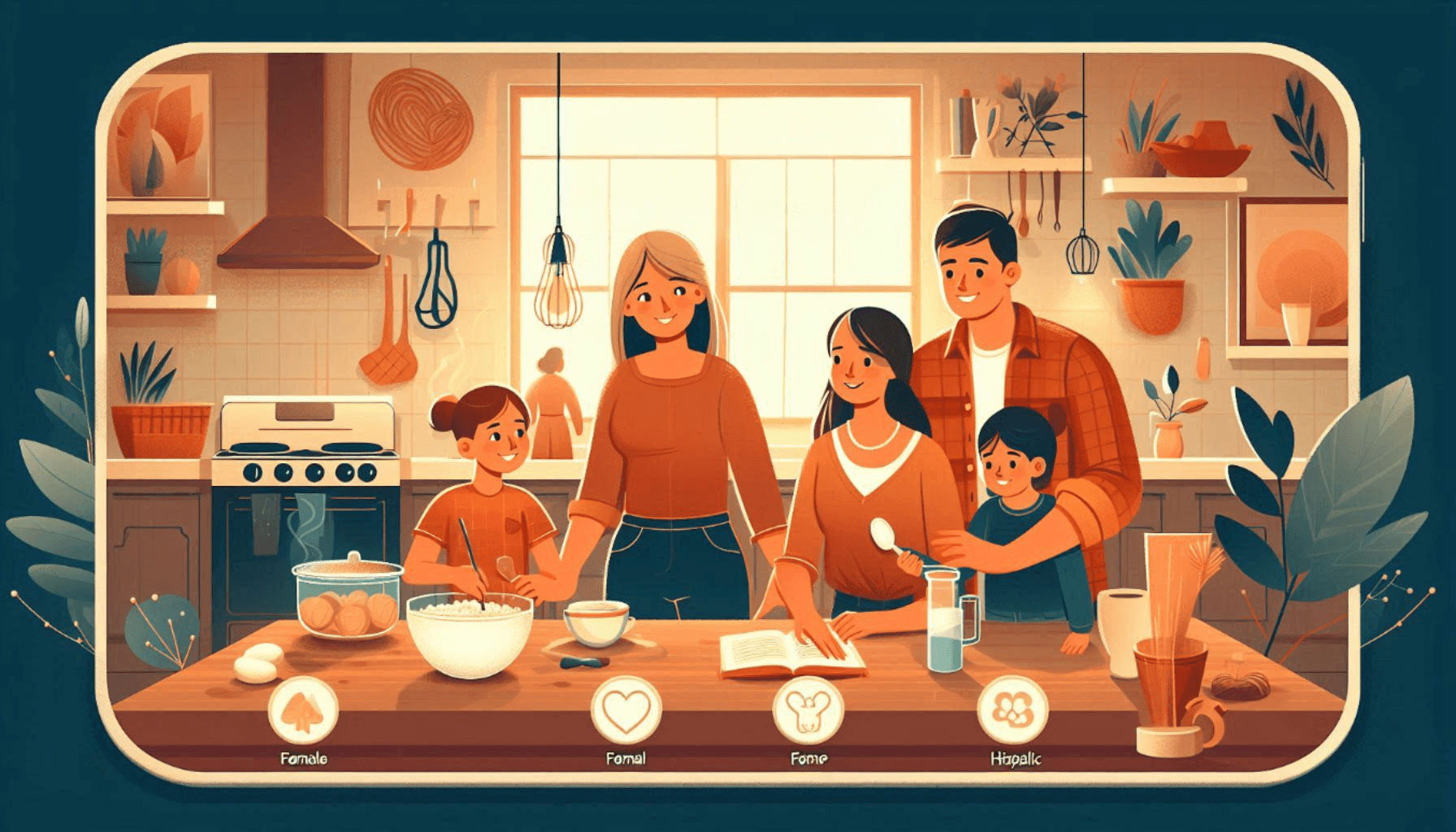Heart
Breaking Free: How to Overcome Unhealthy Family Dependency

Team NxtClue
Content
|
4 mins
|
Aug 26, 2024

0:00/1:34
Don't have enough time to read?
Listen

How to Deal With Unhealthy Dependency on Your Family
Independence is a tricky concept when it comes to families. We are taught to look up to the authority figures in our lives and obey them unquestionably from a very young age. However, we also receive a tremendous amount of support from them throughout our life, whether that’s in the form of financial backing, helpful advice, or even just how much love they shower on us.
Personally, I feel it’s an absolutely brilliant stroke of luck that led me to be born in an Indian family. I can rely on my parents to the point of knowing they’d always have my back no matter how many dumb decisions I made or how many times I switched subjects and careers. On the other hand, this reliance made me realize a while ago how terrifying it would be for me if I were to suddenly be faced with having to make all my decisions on my own.
It was like a wake-up call. Suddenly I found myself hesitant to call my mother the moment when I forgot exactly how much salt I needed to add or what the password to my bank account was (which has happened more times than I would like to admit).
I talked to some foreign friends who were fairly independent, and I found myself feeling ridiculous and almost ashamed of my dependence. While their finances were separate from their family’s, mine were hopelessly entangled. While they knew how to deal with their emotions on their own, my first response would usually be to immediately go up to my family and vent. How would I ever fare on my own?
If you’re going through something like this right now and want to become more independent and self-reliant, here’s how you can kickstart your efforts:
↯ Establish Boundaries
Having boundaries is a natural part of any healthy relationship, no matter what the hierarchies might be. Even if you think of someone as an authority figure, it’s crucial that you establish boundaries. You may worry about upsetting or offending them, but such boundaries are in the long-term interest of your relationship. Detach yourself from expectations other than your own when it comes to your life and do what you think is best for you.
As much as I love the close family structures we desis have, they can also get unbearably exhausting when you have to deal with all your choices being challenged and questioned. So work on finding a middle-ground where you can peacefully exist as both an individual and a part of a unit.
↯ Take the Reins
Once you have the boundaries established, it’s time for some reflection and realization. In Indian families, we often let our elders make our decisions. While it’s natural to depend on your family and ask for advice (that’s what they’re here for, after all), it’s essential that we learn how to make healthy choices of our own and take control of our lives.
Decision-making is a life skill—one that can be challenging to acquire when you live in an environment that encourages dependency as much as Indian family structures do. However, you have to have some confidence in yourself and you also have to ensure what you are trying to achieve is through the right means.
↯ It’s Okay to Disagree
Let’s accept it: There’s no ‘perfect’ family. We Indians glorify the idea of a peaceful and harmonious family with their agyakari beta-betis (dutiful daughters and sons). However, I attribute much of my happiness to the fact that I can easily disagree with my parents with the complete belief that the confrontation will soon be in the past. And that’s pretty much the way all families should work.
Now I’m not telling you to go pick a fight. Just stand up for yourself and don’t bottle your thoughts in, as it will only lead to unresolved issues that have the habit of blowing up at the most inconvenient times. Communication is vital in every relationship.
You may say that it’s easy to talk about all this but challenging to put it in practice. I hear you and I know what you’re saying. Gaining independence over yourself and your actions is a gradual process. It’ll take time and more than that patience. But if you keep at it, you’ll persevere! Just make sure not to spring your sudden burst of independence onto your parents out of the blue and you’ll be fine.
Download
Related Blogs

11 min
Heart
Why Schools Need SEL

Team NxtClue
|
26/08/24

11 min
Heart
Build Closer Family Bonds

Team NxtClue
|
26/08/24

11 min
Heart
Maintain a Healthy Dating Life

Team NxtClue
|
26/08/24

11 min
Heart
Millennials and Relationships

Team NxtClue
|
26/08/24

I May Not Be the Menu, But I Can Still Guide You – I Know Some Shortcuts!
With us
Decision is yours
Without us

Copyright © 2024 NxtClue | All Rights Reserved
0:00/1:34
Don't have enough time to read?

Listen

4 mins
Heart
Breaking Free: How to Overcome Unhealthy Family Dependency

Team NxtClue
|
Aug 26, 2024
Download
How to Deal With Unhealthy Dependency on Your Family
Independence is a tricky concept when it comes to families. We are taught to look up to the authority figures in our lives and obey them unquestionably from a very young age. However, we also receive a tremendous amount of support from them throughout our life, whether that’s in the form of financial backing, helpful advice, or even just how much love they shower on us.
Personally, I feel it’s an absolutely brilliant stroke of luck that led me to be born in an Indian family. I can rely on my parents to the point of knowing they’d always have my back no matter how many dumb decisions I made or how many times I switched subjects and careers. On the other hand, this reliance made me realize a while ago how terrifying it would be for me if I were to suddenly be faced with having to make all my decisions on my own.
It was like a wake-up call. Suddenly I found myself hesitant to call my mother the moment when I forgot exactly how much salt I needed to add or what the password to my bank account was (which has happened more times than I would like to admit).
I talked to some foreign friends who were fairly independent, and I found myself feeling ridiculous and almost ashamed of my dependence. While their finances were separate from their family’s, mine were hopelessly entangled. While they knew how to deal with their emotions on their own, my first response would usually be to immediately go up to my family and vent. How would I ever fare on my own?
If you’re going through something like this right now and want to become more independent and self-reliant, here’s how you can kickstart your efforts:
↯ Establish Boundaries
Having boundaries is a natural part of any healthy relationship, no matter what the hierarchies might be. Even if you think of someone as an authority figure, it’s crucial that you establish boundaries. You may worry about upsetting or offending them, but such boundaries are in the long-term interest of your relationship. Detach yourself from expectations other than your own when it comes to your life and do what you think is best for you.
As much as I love the close family structures we desis have, they can also get unbearably exhausting when you have to deal with all your choices being challenged and questioned. So work on finding a middle-ground where you can peacefully exist as both an individual and a part of a unit.
↯ Take the Reins
Once you have the boundaries established, it’s time for some reflection and realization. In Indian families, we often let our elders make our decisions. While it’s natural to depend on your family and ask for advice (that’s what they’re here for, after all), it’s essential that we learn how to make healthy choices of our own and take control of our lives.
Decision-making is a life skill—one that can be challenging to acquire when you live in an environment that encourages dependency as much as Indian family structures do. However, you have to have some confidence in yourself and you also have to ensure what you are trying to achieve is through the right means.
↯ It’s Okay to Disagree
Let’s accept it: There’s no ‘perfect’ family. We Indians glorify the idea of a peaceful and harmonious family with their agyakari beta-betis (dutiful daughters and sons). However, I attribute much of my happiness to the fact that I can easily disagree with my parents with the complete belief that the confrontation will soon be in the past. And that’s pretty much the way all families should work.
Now I’m not telling you to go pick a fight. Just stand up for yourself and don’t bottle your thoughts in, as it will only lead to unresolved issues that have the habit of blowing up at the most inconvenient times. Communication is vital in every relationship.
You may say that it’s easy to talk about all this but challenging to put it in practice. I hear you and I know what you’re saying. Gaining independence over yourself and your actions is a gradual process. It’ll take time and more than that patience. But if you keep at it, you’ll persevere! Just make sure not to spring your sudden burst of independence onto your parents out of the blue and you’ll be fine.
Copyright © 2024 NxtClue | All Rights Reserved

I May Not Be the Menu, But I Can Still Guide You – I Know Some Shortcuts!
With us
Decision is yours
Without us

Copyright © 2024 NxtClue | All Rights Reserved

I May Not Be the Menu, But I Can Still Guide You – I Know Some Shortcuts!
With us
Decision is yours
Without us

Related Blogs